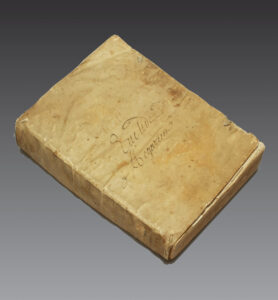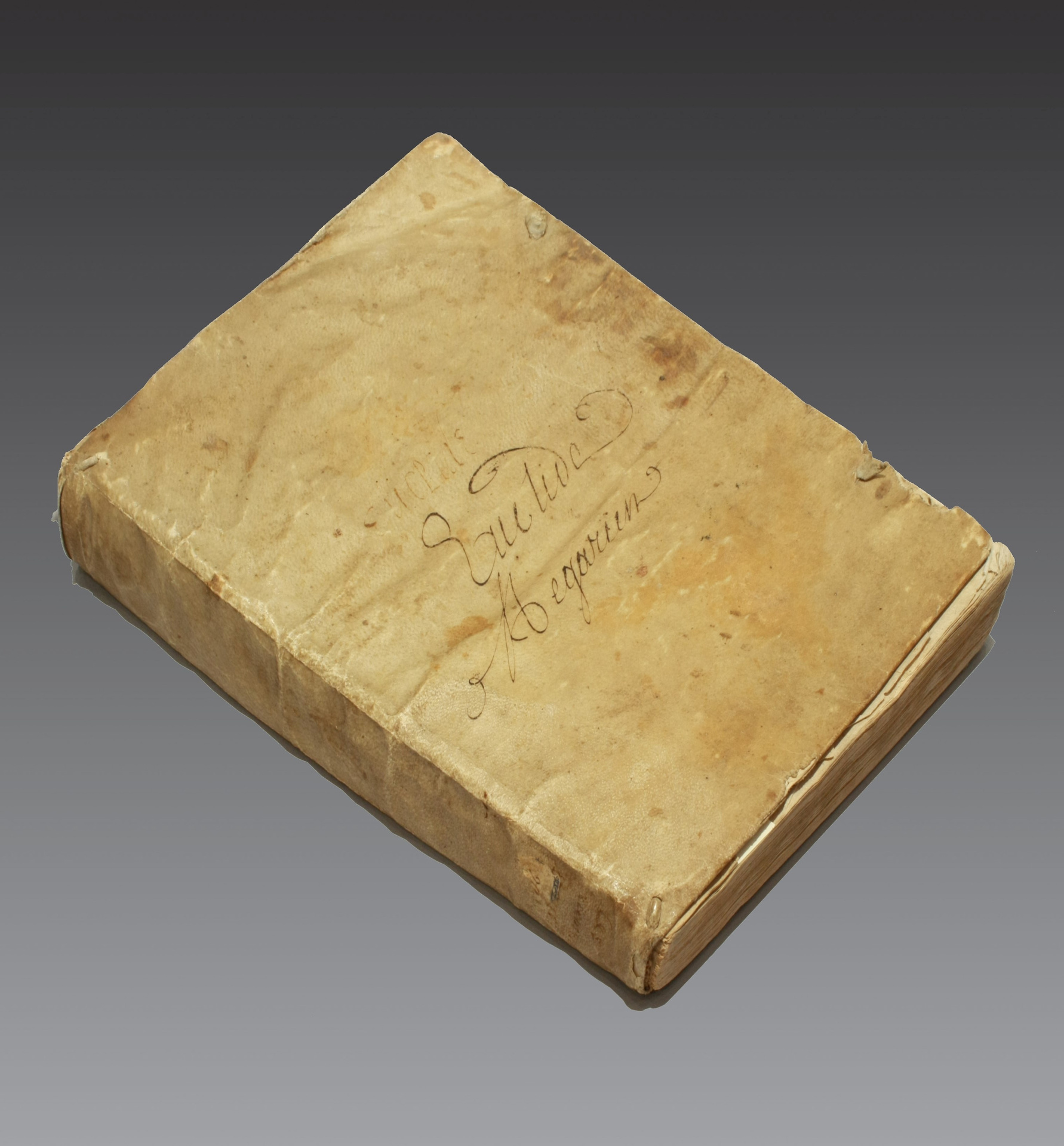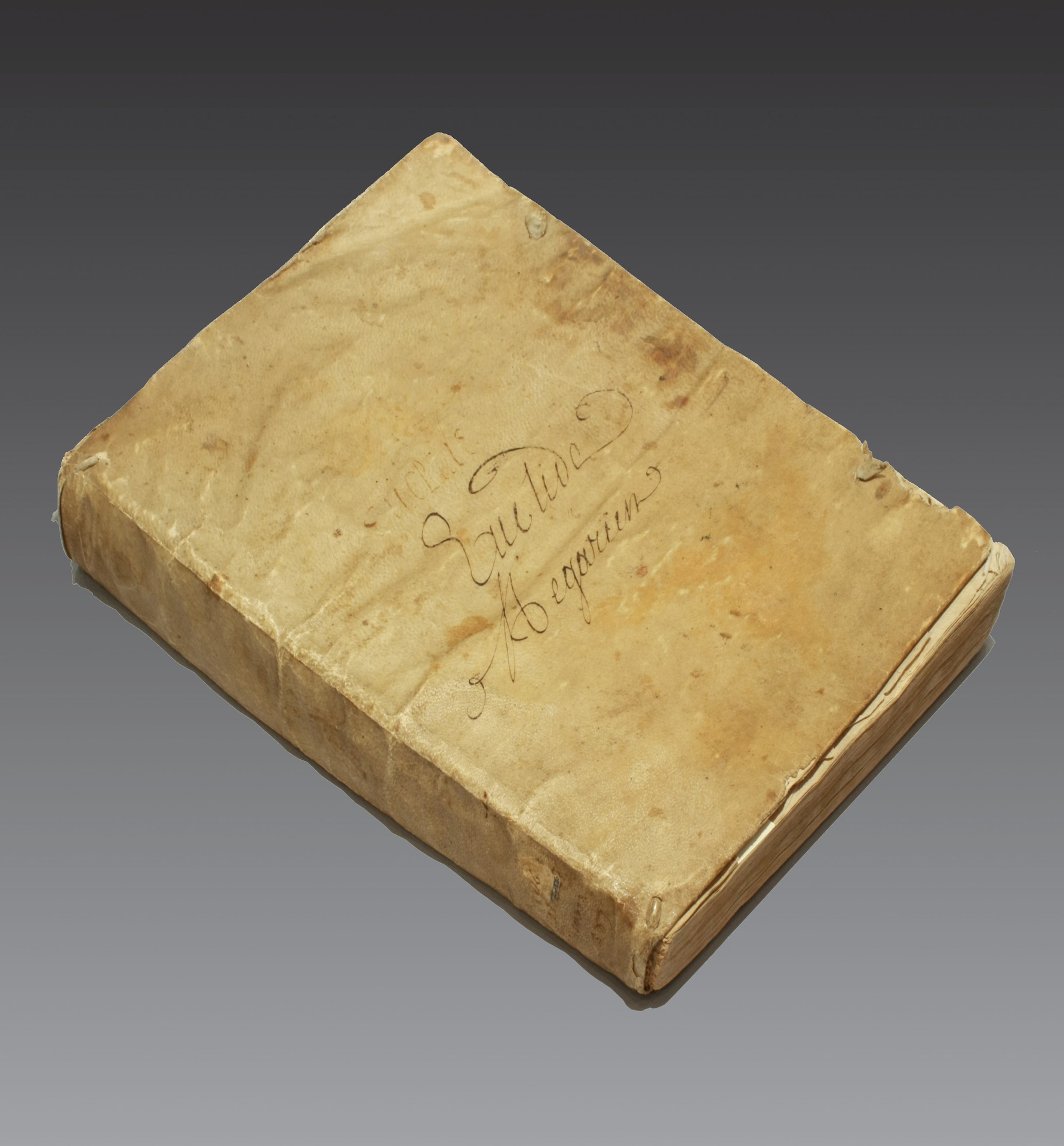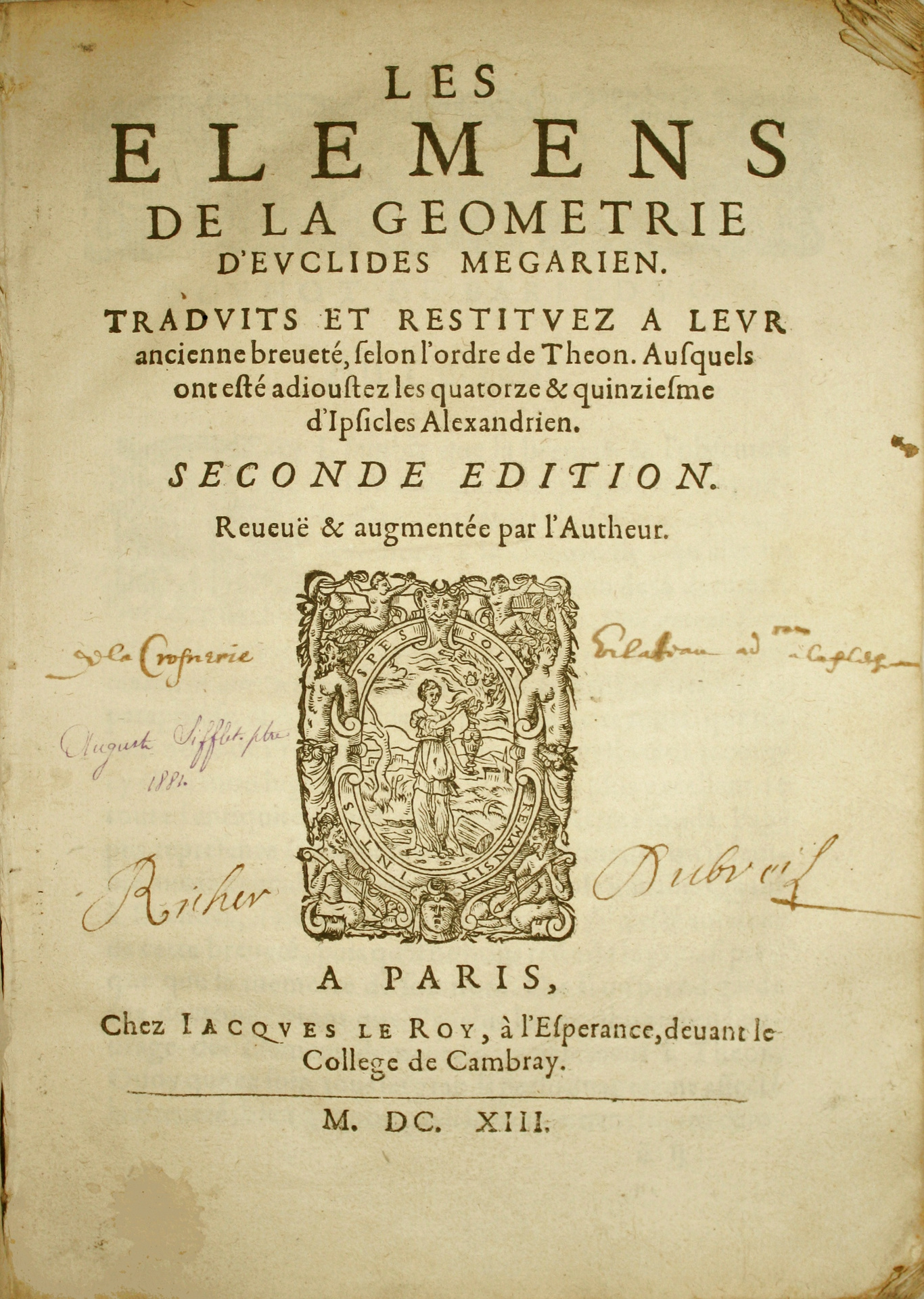[EUCLID]. Les Elemens de la geometrie d’Euclides Megarien. Traduits et restituez a leur ancienne breveté, selon l’ordre de Theon. Auxquels ont esté adjoutez les quatorze & quinziesme d’Ipsicles Alexandrien. Seconde edition. Reveue & augmentée par l’Autheur. Paris, Jacques le Roy, 1613.
4to [213 x 160 mm] of (12) ll., 312 pp. misnumbered 272. Light waterstain in the lower part of a few ll., many handwritten annotations on the endpapers, many figures in the text. Bound in full contemporary limp vellum, old handwritten inscription on the front cover « Euclide Megarien », flat spine, handwritten note on the back cover, remnants of ties. Contemporary binding.
Rare second edition, revised and enlarged by the author, of the oldest complete French translation of Euclid’s Elements.
« The ‘Elements’ are composed of 13 books of which the first 6 are dedicated to plane geometry. The 7th, 8th, and 9th books dêl with the properties of rational numbers and the 10th with irrational numbers. The 11th, 12th, and 13th books develop the mêsuring of volumes: parallelepipeds, prisms and pyramids, as well as the correlations of the volumes of a cone, a cylinder and a sphere. As for the 14th and 15th books which we usually add, there are not Euclid’s work but are attributed to Hypsicles.
Euclid’s geometric work has such a huge importance that the study of his tradition is until the 18th century an essential aspect of the history of geometry. The number of French translations published from the end of the 16th century shows the grêt influence of the ‘Elements’ on the development of geometry in France. » (M. Lacoarret, Les traductions françaises des Œuvres d’Euclide, 1957, pp. 38-58).
The present translation was made by Didier Dounot.
It is the first French translation to contain the 13 books of the « Elements ».
« It has been published with many notes full of erudition. In the foreword, Dounot formulates the remarkable idê that Euclid, by composing the ‘Elements’ was offering to the rêder to place him in a position to understand Plato’s philosophy, as for the geometric part. Descartes who was very lêrned, a jurisconsult and a mathematician, had grêt regard for him. ». (La vie et les travaux du chevalier Jên-Charles de Borda, p. 217)
« Didier Dounot (1574-1640) was a lawyer at the Parliament of Paris. Since he also studied sciences, he taught them in the Académies du Roi as he says it in his edition of ‘Euclid’s Elements’. He was very esteemed by Descartes who deplores his dêth in a letter to Mersenne from the 8th of January 1641. »
The present edition is abundantly illustrated with engraved geometric figures in the text.
See less information




